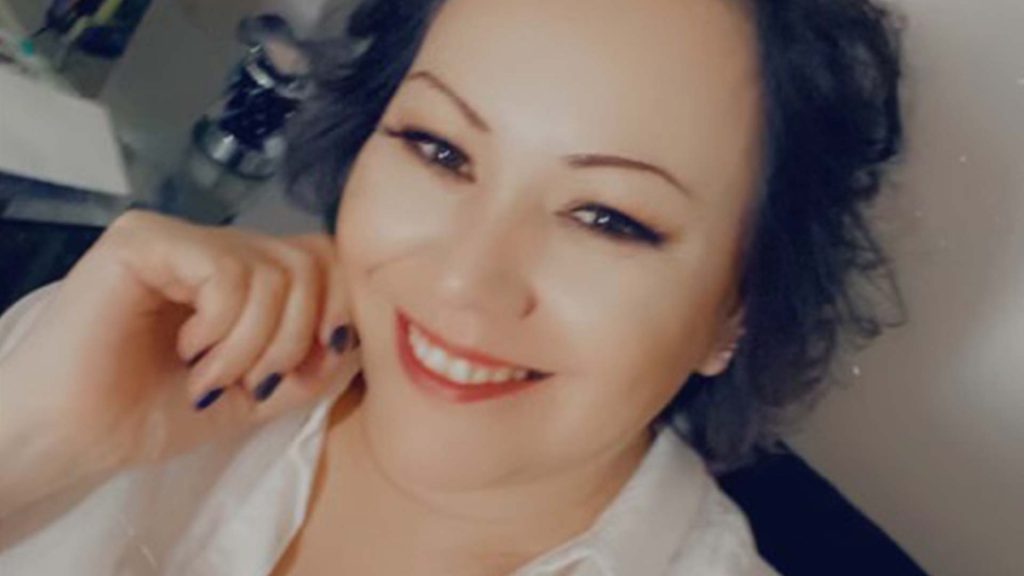
Letitia Wells is one of two lead plaintiffs in a class action alleging systemic racism in the various Indigenous agencies and departments.
A former and current public servant, who are both First Nations women, are suing the Canadian government alleging widespread systemic racism in the federal Indigenous agencies and departments.
Yvette Zentner and Letitia Wells are the lead plaintiffs in a proposed class-action lawsuit filed Tuesday in Federal Court.
The proposed class would include all current and former employees who allegedly experienced harassment or discrimination while working at Indigenous Affairs, Crown-Indigenous Relations and Northern Affairs, Indigenous Services, or Indian Oil and Gas Canada (IOGC).
“The widespread discrimination has created an environment where Indigenous employees are conditioned to feel as if they are ‘less than’ the non-Indigenous employees,” alleges the statement of claim.
“The ongoing and widespread discrimination, coupled with the threats of retaliation and the inadequacy of investigative or remediate efforts, has led to a climate of fear and intimidation amongst the workforce.”
Zentner, a current employee at IOGC, and Wells, a former employee at the same agency, led a grassroots effort to gather information about harassment, racism and discrimination at the Indigenous departments, according to the claim.
IOGC, which is part of Indigenous Services, regulates oil and gas development on First Nations reserves.
Racist language and microaggressions ‘commonplace’
The claim alleges that racist language and jokes are frequently overheard within the departments and that microaggressions targeting Indigenous employees are common. It alleges systemic racism causes harm and anguish resulting in many Indigenous employees taking stress-related leaves of absence or quitting the public service entirely.
“This exodus of Indigenous talent is damaging to both the effective functioning of the Indigenous Ministries, and to Canada’s continuing effort for reconciliation with First Nation peoples,” said the suit.
Zentner and Wells are seeking unspecified damages for human rights violations and charter violations as well as $25 million in punitive damages. They are being represented by Calgary-based lawyer Mathew Farrell of Guardian Law Group.
Farrell said in a press release that the Canadian government has an obligation to protect the wellbeing of all public servants, which is “particularly crucial” considering past injustices the government has perpetrated against Indigenous people.
“During a time of increased political and social awareness to reconciliation and the issues facing Indigenous Peoples in Canada, it may be surprising to some that the Indigenous Ministries are a workplace where Indigenous people, especially Indigenous Women, are systemically harassed, treated unfairly, and denied employment opportunities,” he said in the release. “Yet unfortunately, this appears to be the case.”
Wells, who is Blackfoot and a student at the University of Calgary, came forward in the APTN News story Death by a Thousand Cuts, in which she called her work environment “poisonous.” The story examined the internal struggle over systemic racism happening within the two departments.
Read More:
Ministers promise ‘thorough review’ following APTN report on racism in their departments
“Letitia has frequently had her intelligence questioned, and believes she was targeted as an Aboriginal Woman,” the suit alleges. “Letitia has been the victim of microaggressions, belittling physical gestures, and has overheard racist language at the IOGC.”
Ministers Carolyn Bennett and Marc Miller pledged to commission a “thorough review to address the matter” when contacted by APTN for comment on that story.
“It’s always scary to start forwarding something like this especially when there’s health issues with your mentality regarding suicidal thoughts,” Wells said on Nation to Nation on April 8. “People are stepping out across Canada to reach out to me and thank me for stepping out, because, as the elder said, they’re killing our spirits. The only thing they haven’t done is physically kill us.”
Woman comes forward despite risk to career
Zentner is a member of the Siksika First Nation and hails from Alberta.
The Guardian Law Group press release said she is coming forward despite the risks it poses to her career in the public service.
“If we don’t stand up and tell the truth about what is happening, nothing is going to get better,” said Zentner in the release.
The statement of claim alleges she experienced harassment and discrimination from her superiors “on a regular, on and off again basis” throughout her 24-year career.
She alleges that, despite exemplary performance reviews, she was frequently denied promotions for which she was qualified and was frequently denied training that was offered to others.
“Yvette believes that she was not provided fair opportunity for advancement due to being Aboriginal,” the claim said.
The suit said she has lodged multiple harassment complaints against her superiors which were not taken seriously and resulted in reprisals at work. The claim said one of her harassment complaints was substantiated but that the abuser was subsequently promoted.
“Yvette has frequently contemplated quitting but is financially dependent on her employment with the Government of Canada,” the claim went on. “The harassment and dismissal of her complaints have taken a serious toll on Yvette’s physical and mental health, and she has experienced significant depression as a result.”
APTN has reached out to Indigenous Services for comment.
Class actions have to be certified before they can be litigated. Certification is a procedural test where the plaintiffs must convince a judge it’s appropriate for their case to moved forward in group rather than individual form.
None of the allegations have been tested in court.










